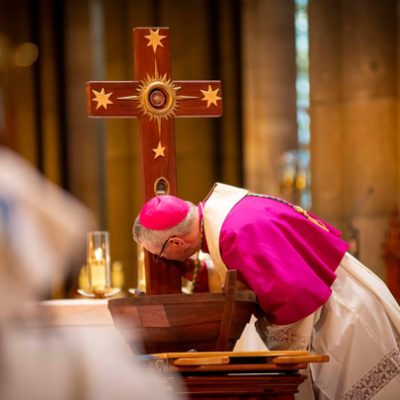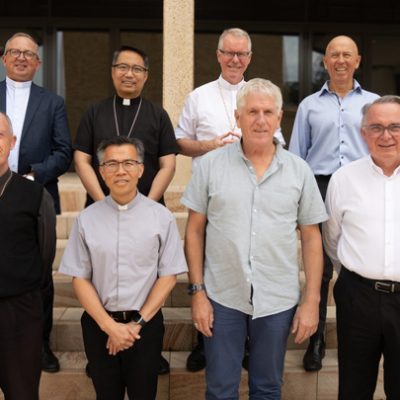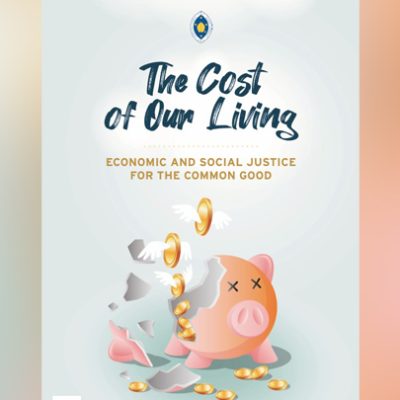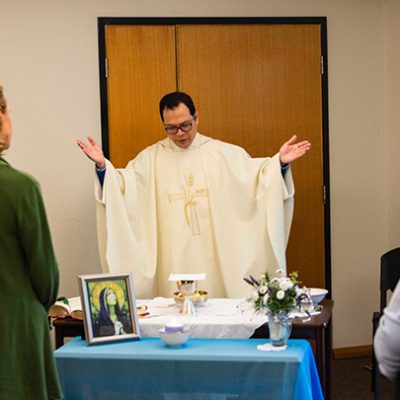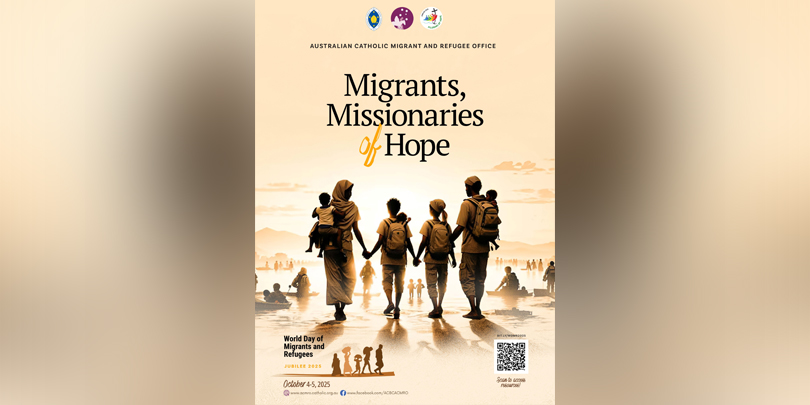
Australians have been urged to reflect on the values of compassion, justice and hope as Catholic communities mark the World Day of Migrants and Refugees on Sunday, October 5. Source: ACBC.
The Church has a long-standing commitment to welcoming and supporting migrants and refugees, while promoting social justice, cohesion and unity.
Archbishop Christopher Prowse, chair of the Bishops Commission for Evangelisation, Laity and Ministry, and Bishop Timothy Harris, chair of the Bishops Commission for Social Justice, Mission and Service, urged Australians to respond with compassion and hope amid growing public debate around immigration.
“In the immigration debate, there’s a difference between reacting and responding,” Archbishop Prowse said.
“Let’s not go backwards. Yes, there are difficulties, but we can work it out together because Australia is renowned worldwide for its hospitality.
“Social cohesion is a central part of what makes Australia a good place.”
Reiterating his recent pastoral letter, Bishop Harris said: “Each newcomer to our shores is a person created in God’s image and arrives with hopes for safety, dignity and the opportunity to contribute to a new life.”
This year also marks the 75th anniversary of the Australian Catholic bishops’ pastoral letter on immigration, a foundational document that continues to shape the Church’s advocacy.
In the recent publication, Under the Southern Cross: A Journey of Faith and Unity, the bishops wrote: “This timeless call to hospitality and generosity remains as vital today as it was 75 years ago … We are called to become a living witness to hope and to build a community that recognises migrants and refugees as brother and sister.”
Across Australia, Catholic parishes, schools, and organisations are hosting events, liturgies, and community gatherings to mark the World Day of Migrants and Refugees.
These initiatives echo the call of Pope Leo XIV to foster dialogue, celebrate cultural diversity, and promote pathways to inclusion.
Resources to celebrate this occasion are available on the Australian Catholic Migrant and Refugee Office website
FULL STORY



